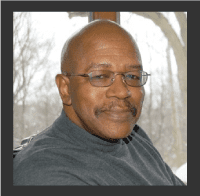Yale professor, Sociologist Elijah Anderson to Speak at UCF
 Sociologist to talk about role of race in current society
Sociologist to talk about role of race in current society
Professor and American sociologist and ethnographer Elijah Anderson will be at UCF on April 9 speaking to students about his latest book “The Cosmopolitan Canopy: Race and Civility in Everyday Life.”
Anderson will educate the audience and make attendees aware of this social phenomenon he has discovered through his research.
James Wright, the director of the UCF Institute for Social and Behavioral Sciences, said that Anderson was invited to campus as a guest speaker by the Sociology Department because he has been an important figure in the sociology of race for the last two decades.
The event will take place at the College of Sciences building in room 101 and is scheduled to begin at 4:30 p.m.
Judy Froehlich, communications specialist at the COS, said that many student organizations were invited to this event, such as the Asian Student Association, Black Student Union, the African Students’ Organization, Dream Defenders, the Alpha Kappa Delta International Sociology Honor Society, the Black Female Development Circle, the National Black Law Students Association and more.
The students will listen to Anderson explain his theories and observations on people’s behavior toward one another.
His research began in Philadelphia, which is where he came up with the concept of the “cosmopolitan canopy,” by realizing through scrutiny how people get along regardless of the suburb, ethnic enclave, race or background they may come from.
Anderson said his “cosmopolitan canopy” concept describes a civil society where people go and expect to be treated with civility, whether others have similar or distinct backgrounds. The backgrounds, he said, consist of the cosmopolitan person or an ethnocentric person.
The “cosmopolitan canopy” concept encourages people to embrace their cosmopolitan side and keep their ethnocentric side in check because, otherwise, tension could arise causing others to feel disrespected, which would lead to the “provisional status” concept.
This concept, as introduced by Anderson, happens when people feel uncomfortable and feel the need to prove that they are worthy of respect, which occurs when ethnocentric people struggle getting along with those who are different from them, leading to making others feel disrespected.
Another phenomenon detailed in his book is the “iconic ghetto.”
Anderson said that as a cosmopolitan person, one easily gets along with everyone and treats everyone with civility. He added that being a cosmopolitan person means that one has been brought up to treat everyone with respect, so it is easy to do so when one is around a diverse group of people.
This theory about ethnocentric people is that they have a hard time getting along with others who are not from the same suburb, ethnic enclave, race or background. This means that one may have difficulty getting along with people who are different from what one considers normal.
Do you fit into any of those groups? Anderson said some people could be all the way a cosmopolitan person or an ethnocentric person.
The book also describes the Reading Terminal Market, which is a place in Philadelphia where different kinds of people go and enjoy different types of food. The Reading Terminal Market is an example of a place that encourages people to display their cosmopolitan side in a diverse setting, Anderson said, which is why ethnocentric people have to work harder to be able to be civil toward people who are different from them.
“You can have vegetables and fruits. You can have beef jerky, and you can have a turkey sandwich. You can eat soul food. You can eat Chinese food. You can eat everything you want. You know, everything. All kinds of people go there and it’s such a diverse group of people,” Anderson said.
For more information about Anderson’s forum please click here.
